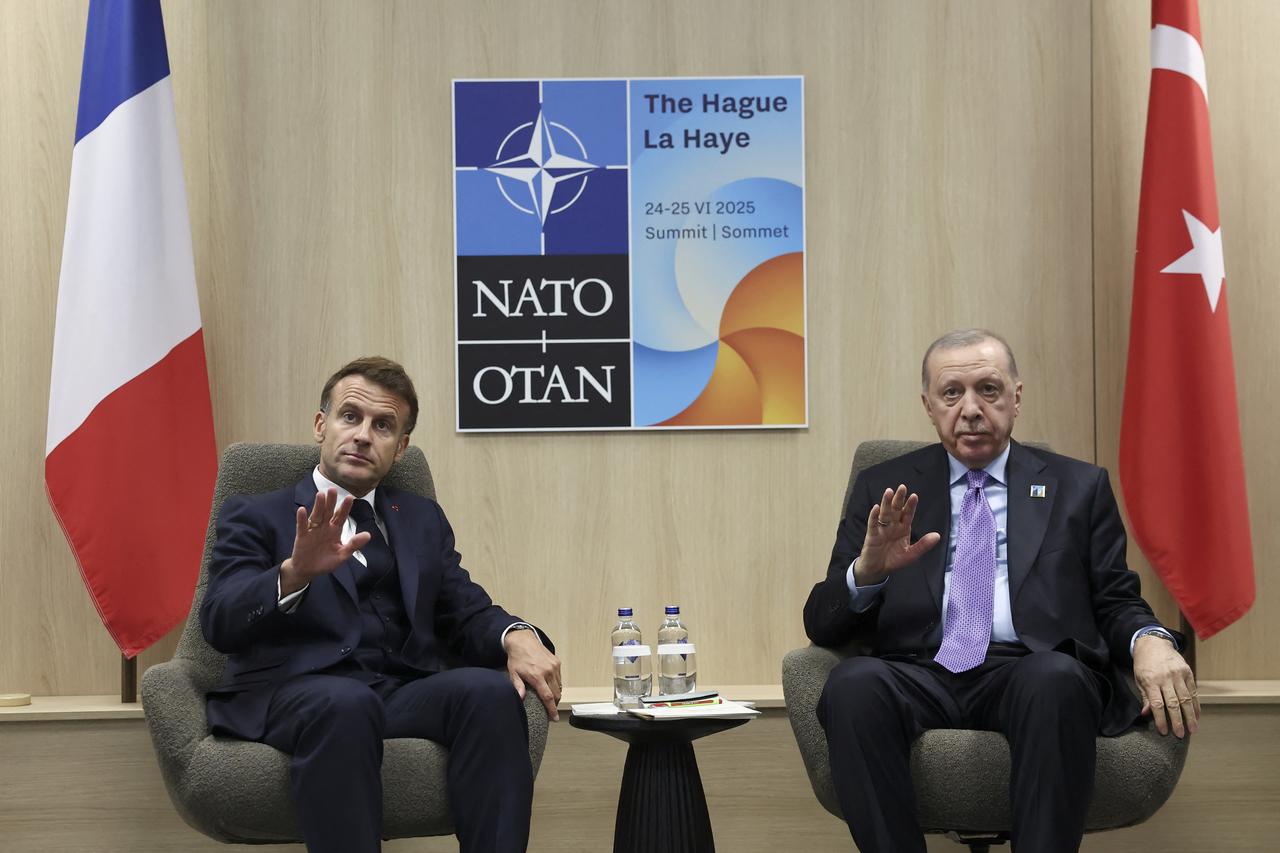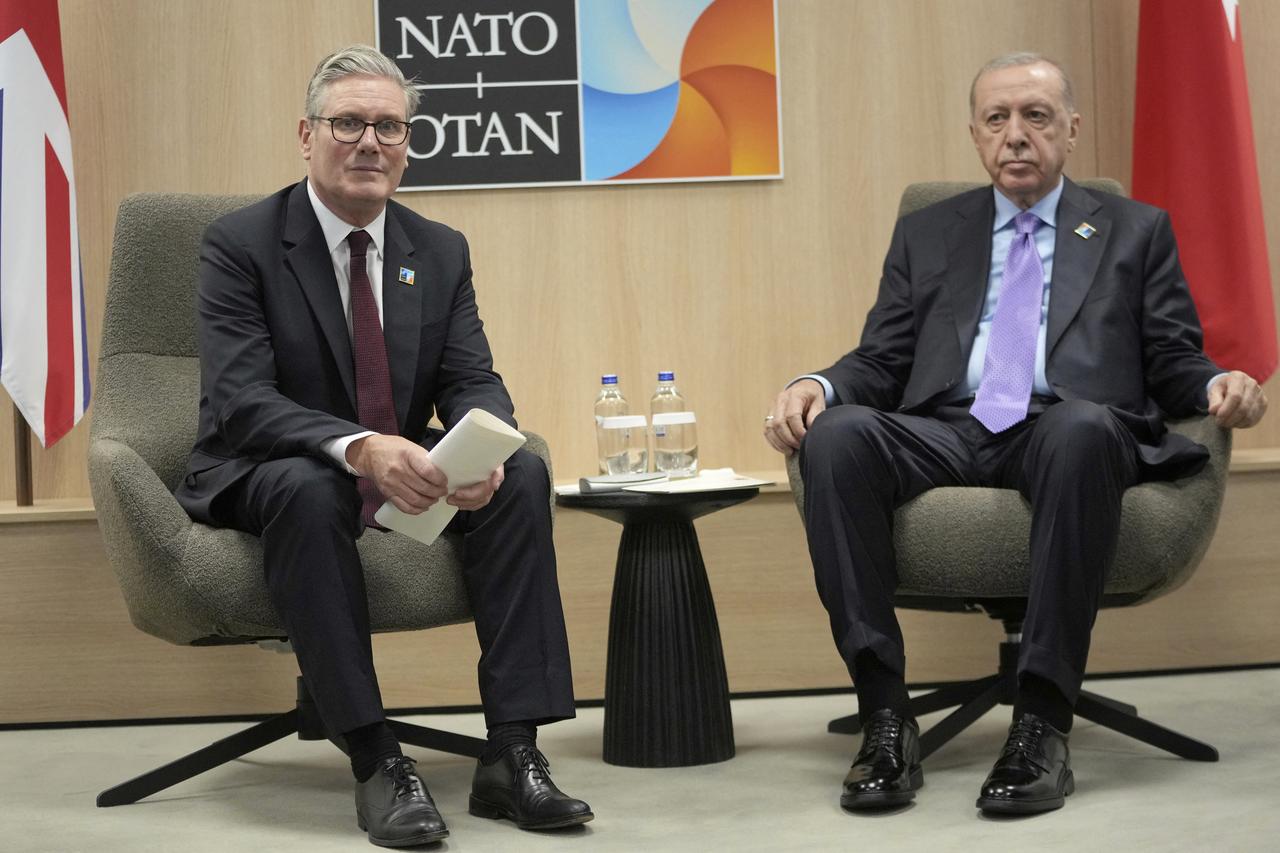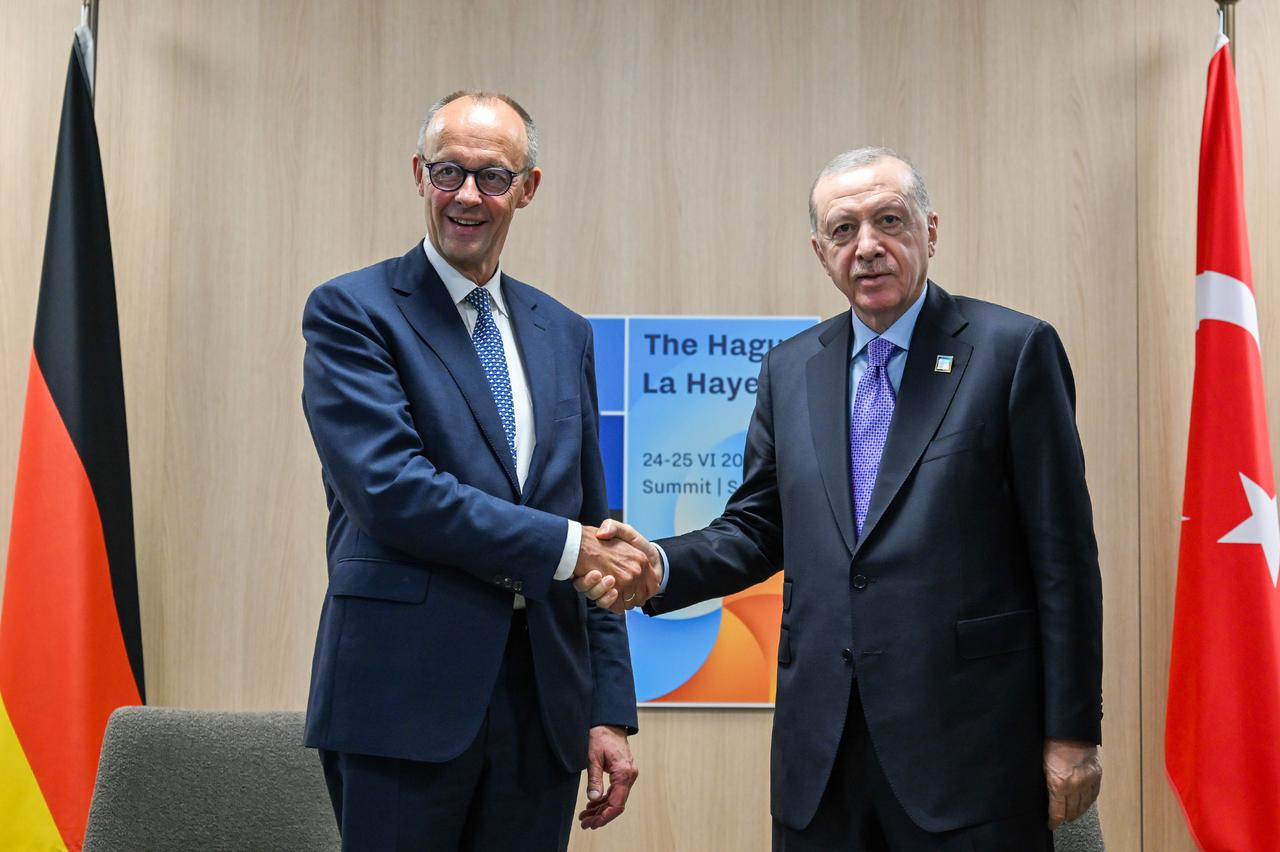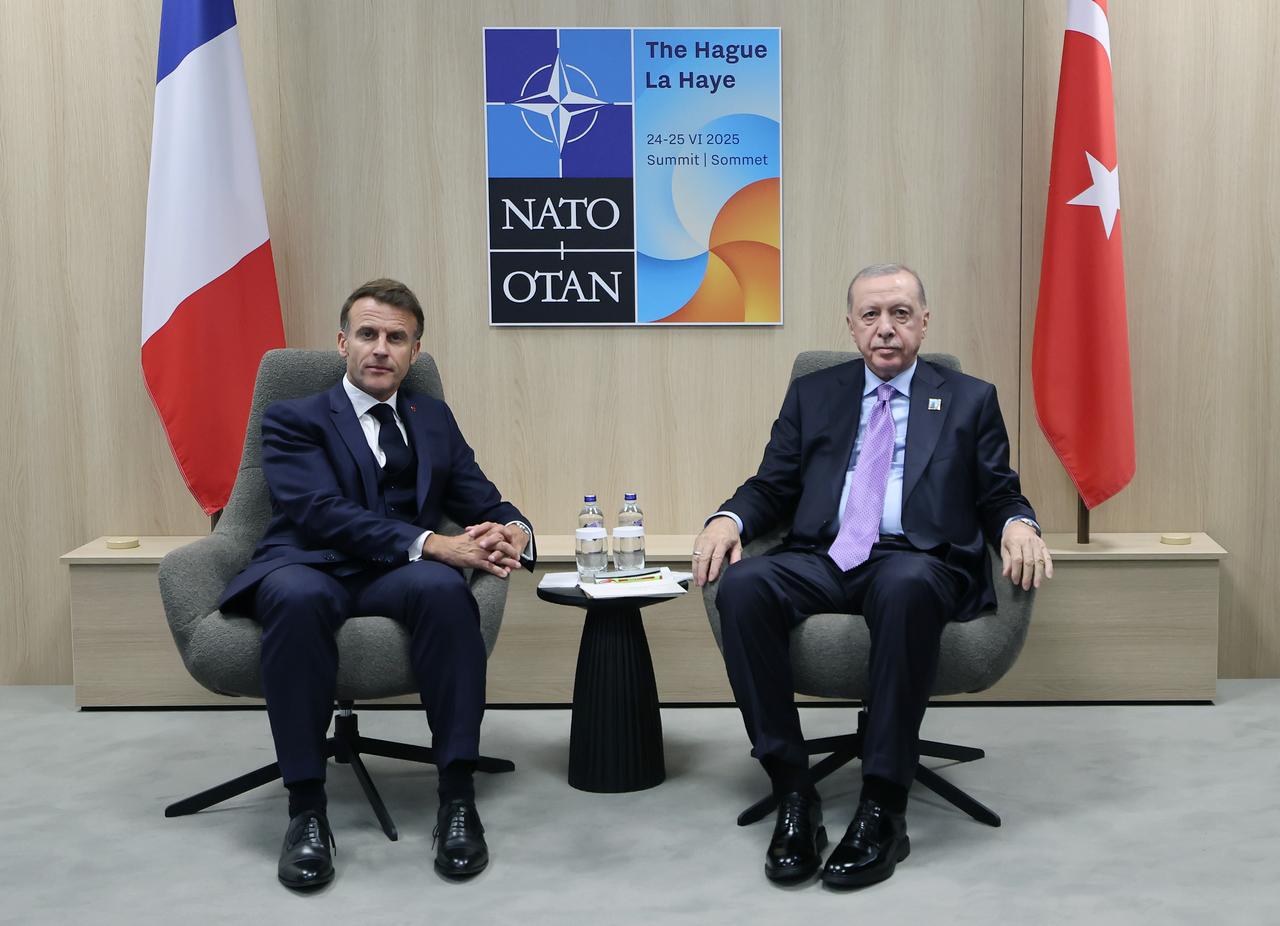
President Recep Tayyip Erdogan held a series of high-level meetings Wednesday with U.K. Prime Minister Keir Starmer, German Chancellor Friedrich Merz, and French President Emmanuel Macron on the sidelines of the NATO Leaders’ Summit in The Hague.
The talks covered bilateral ties, regional crises, and joint defense initiatives.
In his meeting with U.K. Premier Keir Starmer, President Erdogan expressed hope that Iran and Israel would continue to respect the cease-fire reached earlier this week. He warned, however, that "the humanitarian catastrophe in Gaza must not be overshadowed by escalating regional tensions."
According to Türkiye's Communications Directorate, Erdogan reiterated that violations of international law by the Israeli government are unacceptable, and emphasized Ankara's priority of achieving a lasting cease-fire in Gaza and ensuring unhindered humanitarian access.
He also reaffirmed Türkiye's support for Syria’s territorial integrity, cautioning that Israeli strikes in Syria could further destabilize the region. President Erdogan also added that improved living conditions in Syria could help enable the large-scale return of refugees.
The two leaders discussed strengthening bilateral trade, with a goal of reaching $30 billion, and agreed to enhance cooperation in defense industries.

Erdogan also met with German Chancellor Friedrich Merz at the World Forum convention center. Though no official readout was provided, the meeting comes as Türkiye pushes for German approval of a Eurofighter Typhoon sale, which Berlin had previously blocked due to tensions with Athens.
The closed-door discussion was attended by top Turkish officials, including Foreign Minister Hakan Fidan, Defense Minister Yasar Guler, and Intelligence Chief Ibrahim Kalin.

In a separate meeting with French President Emmanuel Macron, Erdogan expressed satisfaction over the cease-fire between Israel and Iran, but emphasized the urgent need to transform the de facto calm into a lasting peace. He again stressed that the deepening humanitarian crisis in Gaza must not be forgotten.
Erdogan also called for a strategic and long-term perspective on Türkiye-EU relations and suggested that non-EU NATO allies should be included in Europe’s evolving security and defense architecture.
He noted that Syria has acted cautiously to avoid further regional conflict, and emphasized that Israel’s security depends on the stability of its neighbors, adding that mutual understanding is crucial for long-term peace.
The two leaders also discussed enhancing bilateral relations and defense cooperation, including Türkiye’s interest in co-producing the SAMP/T missile-defense system.

Separately, NATO leaders announced a landmark commitment to increase defense spending to 5% of gross domestic product (GDP) by 2035. According to the summit declaration, at least 3.5% will be allocated to core defense needs and 1.5% to critical infrastructure, cybersecurity, and defense industrial resilience.
NATO also pledged to eliminate barriers to defense trade, promote industrial partnerships, and include military aid to Ukraine in national defense expenditure calculations.
In a significant development, the 2026 NATO Summit will be hosted by Türkiye, as confirmed in the Communications Directorate.